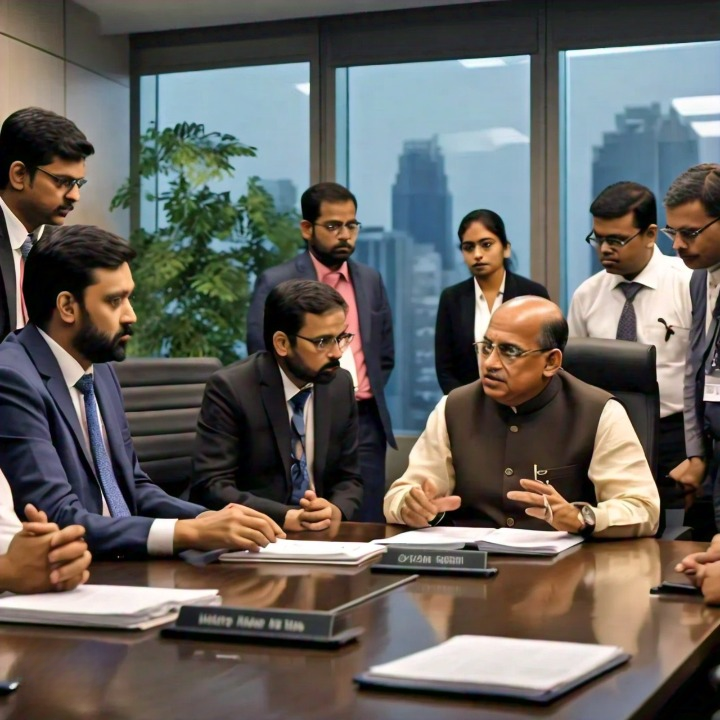Centre Reviews Upper Wage Limit for EPFO Contributions and Pension Scheme
By Taxurban Admin on 26 Oct 2024

In a significant move aimed at improving social security for workers, the central government is considering changes to the Employees’ Provident Fund Organisation (EPFO) and the Employees’ Pension Scheme (EPS). Union Labour Minister Mansukh Mandaviya announced that the government is reviewing the upper wage limit for contributions to these schemes, along with other major updates aimed at enhancing benefits for pensioners and workers. Here's what you need to know:
Key Announcements and Developments
1. Increase in Wage Ceiling for EPF Contributions
Currently, contributions to the EPF are capped at a wage ceiling of ₹15,000. This means that the mandatory provident fund contributions are calculated based on a salary limit of ₹15,000, regardless of the employee's actual earnings. Minister Mandaviya hinted that the upper wage limit could be raised, allowing employees to contribute more to their provident fund accounts.
- Current Rule: Contributions are based on a wage ceiling of ₹15,000.
- Proposed Change: The government is considering removing or increasing this ceiling, potentially enabling higher-income earners to save more through the EPF.
2. Changes in Pension Contributions under EPS
Under the Employees’ Pension Scheme (EPS), employers contribute 8.33% of the employee's salary, capped at ₹15,000, towards the pension fund. The government is reviewing this wage ceiling and considering increasing the minimum pension under the EPS to provide better financial security for pensioners.
- Current Pension Contribution: 8.33% of ₹15,000.
- Proposed Changes: Increase the pension ceiling and potentially raise the minimum pension amount for beneficiaries.
3. Addressing Delays in Higher Pension Distribution
After a Supreme Court verdict, many EPFO members applied for higher pensions based on actual salary instead of the capped wage. However, delays in processing these claims have been a significant concern. Minister Mandaviya stated that the EPFO platform would soon be reviewed, and Mission 3.0 would be implemented to streamline claim processing and offer faster resolution to subscribers.
Employment-Linked Incentive (ELI) Scheme
The Ministry of Labour is also finalizing a Cabinet note for the Employment-Linked Incentive (ELI) scheme, as announced in the Union Budget. This scheme aims to incentivize employment generation in various sectors, helping boost job creation and formal employment.
- Objective: Encourage businesses to create more jobs.
- Status: The scheme is under review and will be presented to the Cabinet for approval soon.
eShram Portal: Expanding Social Security for Unorganized Workers
The Minister highlighted the success of the eShram portal, which has registered over 30 crore unorganized workers in the last three years. The portal will now be expanded to link other social security schemes and job opportunities, making it a one-stop solution for unorganized workers seeking benefits.
- Portal Expansion: More schemes will be integrated, enabling workers to find jobs and access social security benefits.
Improvements in EPFO Claim Processing
To further streamline benefits for EPFO members, the organization has increased the auto claim settlement limit for partial withdrawals from ₹50,000 to ₹1,00,000. This facility, available for purposes such as housing, education, marriage, and illness, now processes 60% of claims within 3-4 days, down from the earlier processing time of 10 days.
Conclusion
The Centre's initiatives to raise the EPFO wage ceiling, streamline pension disbursements, and improve eShram access are positive steps toward enhancing social security for millions of workers in India. With the proposed changes, workers will have more opportunities to save for retirement, access pensions, and benefit from government schemes designed to support them.
As the changes unfold, Taxurban is here to help businesses and employees understand how these updates affect their financial planning, EPF contributions, and pension management.
Disclaimer: This blog post is for informational purposes only. Always consult with a tax or financial professional before making decisions related to your EPFO or pension contributions.


Leave A Comment